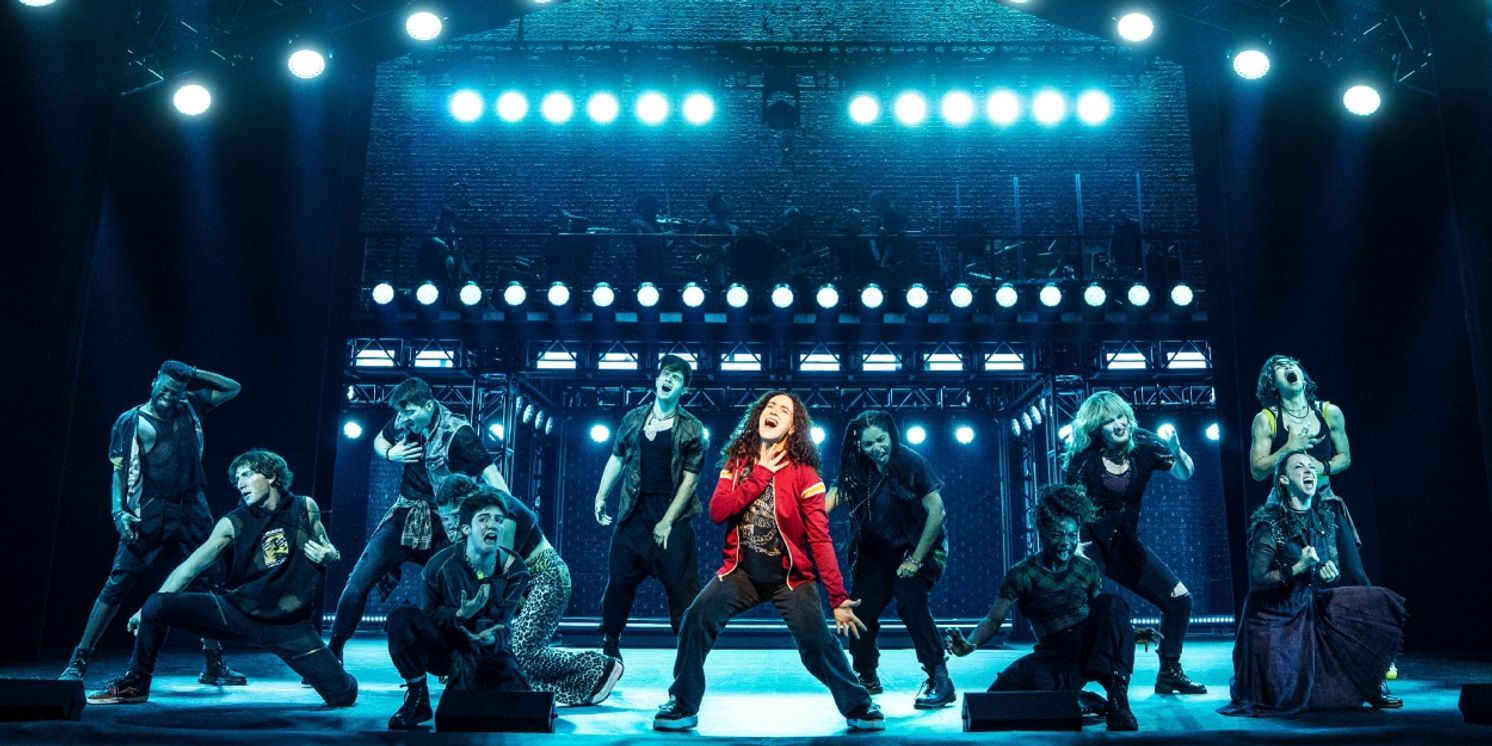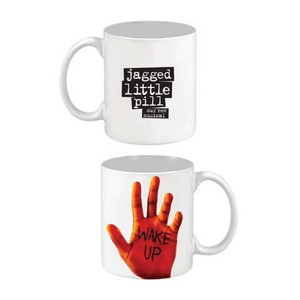Review: JAGGED LITTLE PILL at Dr. Phillips Center — A Case of Alanis More-Is-Less
If one hand's in your pocket, the other won't be enough to count all of the show's plot threads.

There’s a famous line in Alanis Morissette’s classic alt-rock song, “You Learn”: I recommend biting off more than you can chew to anyone, I certainly do.
She certainly does, at least where Jagged Little Pill is concerned.
I don’t mean the mega-successful 1995 album that almost single-handedly changed pop music thirty years ago, paving the way for artists like Avril Lavigne and Olivia Rodrigo. Rather, it’s the 2019 Broadway musical inspired by that album — now running at Orlando’s Dr. Phillips Center through March 24th — that I can’t quite swallow.
But it’s not for the usual reasons. Jagged Little Pill doesn’t commit the ordinary sins of a jukebox musical. It’s not another rags-to-riches celebrity biography, nor is it a cookie-cutter story with a singer’s lyrically unconnected songs indelicately wielded in.
No, Jagged Little Pill has the opposite problem. It wants to tell a story so badly that it tries to tell all the stories.
There’s the one about middle-aged Mary Jane, the drug-addicted suburban mom who is juggling marriage counseling, body dysmorphia, mean-spirited friendships, a repressed history of abuse, and an opioid prescription that her doctors won’t renew.
The one about Steve, the overworked lawyer with a crippling pornography addiction.
The one about Nick, the all-American, Harvard-bound son who is harboring vital information in the case of a disbelieved rape victim, staring down local protest and rumor.
Or the one about Frankie, the Black adopted daughter of a white religious family who won’t accept her woke political leanings, bisexual identity, or the fact that she is in a relationship with Jo, who identifies as nonbinary, but is also secretly cheating on Jo with a boy.
…To name just a few. I could go on. I started listing the major social themes in Jagged Little Pill and stopped myself when the list reached fifteen. There are so many threads that at least one (about a young man’s dangerously sick sister) completely disappears before the curtains close.
It’s admirable, really. When’s the last time a jukebox musical gave me this much to mull over? And not only do they manage to tackle an A-to-Z of Societal Ills, but Morissette and librettist Diablo Cody even somehow render the lyrics reasonably on point. (Morissette contributes two new songs to the score, along with two dozen of her preexisting compositions, some of them gently but cleverly reworked.) A notable exception is “Head Over Feet,” which, ironically enough, trips over itself to become both a teens-falling-in-love number and an expression of seething marital angst.
Did I mention irony? Yes, “Ironic” is here. Cody knows that this show must contain Morissette's biggest hit, but also that its lyrics are so specific and bizarre that they can never make narrative sense. So Cody conceives of a clever device: make one of the characters a poet so that the song becomes her classroom recitation (turning this ever so briefly into a “backstage musical”). It’s lovely and witty, with the characters exposing how technically unironic the verses are — and then also letting Morissette punch back at that tired old internet barb by way of a surrogate.
But the absolute musical highlight — and, frankly, one of the most stunning sequences I have ever seen on a stage — is “Uninvited,” the haunting 1998 song that transforms into an utterly breath-stilling, almost Lynchian depiction of addiction. Those four minutes alone justify the entire show’s existence (and your ticket to see it).
Alanis Morissette’s voice is not easily imitable, but that’s okay, because Julie Reiber isn’t exactly imitating her as Mary Jane. But her voice does effortlessly leap to the most emotive and pointed parts of these songs, never once denying them their dramatic heft. She finds a place of nuance in Mary Jane, who could easily be played as a “type” but becomes whole in Reiber’s compassionate portrayal of a complex inner struggle.
Teralin Jones also has a beautiful singing voice, and she’s easily believable as a socially conscious but inwardly unsteady teenage girl. Jade McLeod finds an authentic connection to that angst too as Jo, their sense of self-sureness and indignation seeming to capture not only a character but a generation, even. Their rageful take on “You Oughta Know” is so intense and vocally formidable that it nearly drives the audience to its feet, though McLeod’s turn toward screaming at the end won’t be to everyone’s taste.
Delaney Brown, stepping in for Allison Sheppard on opening night, makes a strong impression as the victimized Bella, emphasizing the character’s interiority. And among the supporting cast, Chelle Denton stands out in a humorous turn as Frankie’s overwhelmed teacher.
Not all the performances hold their own. In the role of brother Nick, Dillon Klena’s singing voice falters under the weight of Morissette’s range requirements. Rishi Golani falls victim to the same as Frankie’s love interest, Phoenix, though not consistently so (he sounded great in “Ironic” on opening night), and he’s otherwise endearing in the role.
Benjamin Eakeley doesn’t get much to work with as the milquetoast father figure, whose porn-addict arc gets lost in the shuffle. He can easily reach every note, but his theatrical singing is not well suited to the score’s rock stylings.
Jagged Little Pill is a show with too many characters, too many concerns, and too tidy a conclusion (complete with a sitcom-ish group laugh at the end). Its heart is in the right place and its message well received, but it relies on an extraordinary confluence of extreme circumstances.
If “more story” was the prescription for a better jukebox musical, Jagged Little Pill is an overdose. It’s a little too ironic, don’t ya think?
What do you think of JAGGED LITTLE PILL on tour? Let me know on Twitter @AaronWallace.
Photo Credit: Jade McLeod and the North American Touring Company of JAGGED LITTLE PILL. Photo by Matthew Murphy for MurphyMade, 2022.


